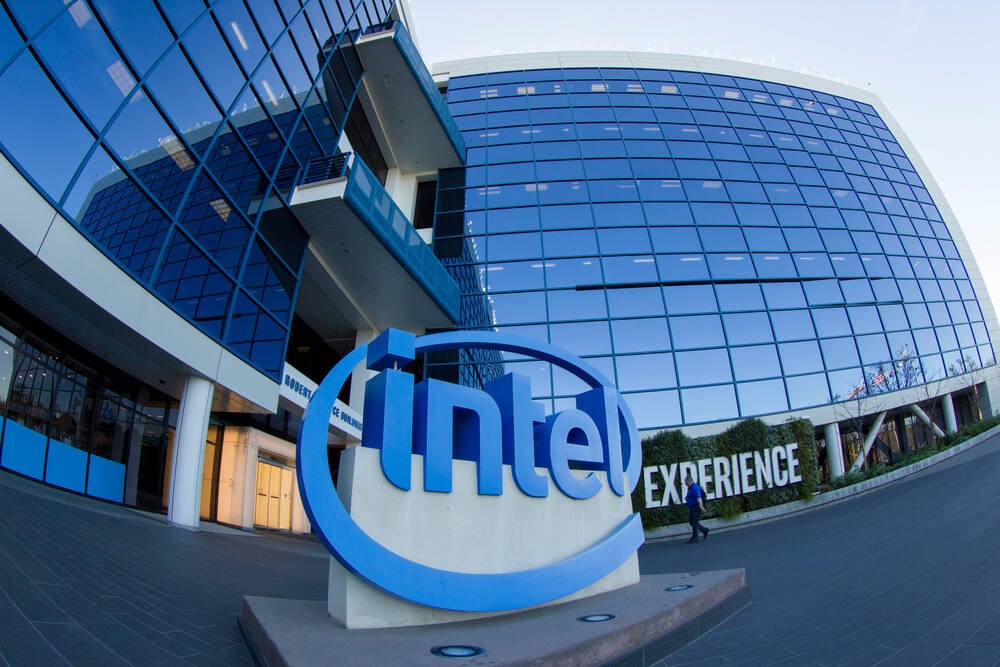Intel Angles For More Subsidies To Build German Mega-fab

Intel has said it remains committed to the construction of its planned chip manufacturing plant in Germany, just weeks after a company spokesperson said the project was on hold.
According to Intel's Chief Global Operations Officer (CGOO) it still intends to build the chip fabrication plant and is now working out the final funding details with the German government.
The chip maker announced almost a year ago that it had selected a site at Magdeburg in eastern Germany for a new manufacturing mega-fab, after considering a number of locations around Europe.
Work had been due to start on building the Magdeburg plant sometime in the first half of this year and chip production had been pencilled in for 2027 on Intel's blueprint, but in December the company spoke about delaying the work due to the rising cost of energy and raw materials, plus the falling demand for semiconductors having an impact on Intel’s near-term financial outlook.
"Geopolitical challenges have become greater, semiconductor demand has declined, and inflation and recession are disrupting the global economy," Intel spokesperson Benjamin Barteder said at the time, adding: "This means we cannot yet give a definitive date for the start of construction."
Perhaps one of the factors influencing Intel’s thinking is its own revenue, which fell by nearly 20 percent during 2022, according to figures published this week from research outfit Gartner.
But Keyvan Esfarjani, CGOO, has now told Reuters the project is most definitely still on: "We are committed to making the Magdeburg project successful," he said, adding "While we have to pace ourselves in this current environment, we can't take our eye off the ball."
As The Register reported last year, Intel was already pencilled in to receive €6.8 billion ($7.2 billion) in subsidies from the German government, which would have been enough to cover roughly 40 percent of the then expected cost of construction at the Magdeburg site.
But Intel in December indicated it needed more subsidies, as the estimated construction cost had increased from €17 billion ($18 billion) to about €20 billion ($21.7 billion).
- TSMC said to be considering first European semiconductor plant
- Intel may delay construction of German mega-fab to cut costs
- EU still getting its act together on European Chips Act funding
- EU semiconductor investment not nearly enough, warns chip boss
Reuters reports that a spokesperson for Germany's economy ministry said it was in constant communication with both Intel and the European Commission about the project, and the level of funding Germany was able to agree with Intel would have to be approved by the European Commission.
The EU is keen for semiconductor manufacturers to set up more fabrication plants within the region, partly to be less reliant on other countries' semiconductor supplies. This lack of self sufficiency was highlighted in recent years by sustained shortages. The EU announced the European Chips Act last year to provide funding. ®
From Chip War To Cloud War: The Next Frontier In Global Tech Competition
The global chip war, characterized by intense competition among nations and corporations for supremacy in semiconductor ... Read more
The High Stakes Of Tech Regulation: Security Risks And Market Dynamics
The influence of tech giants in the global economy continues to grow, raising crucial questions about how to balance sec... Read more
The Tyranny Of Instagram Interiors: Why It's Time To Break Free From Algorithm-Driven Aesthetics
Instagram has become a dominant force in shaping interior design trends, offering a seemingly endless stream of inspirat... Read more
The Data Crunch In AI: Strategies For Sustainability
Exploring solutions to the imminent exhaustion of internet data for AI training.As the artificial intelligence (AI) indu... Read more
Google Abandons Four-Year Effort To Remove Cookies From Chrome Browser
After four years of dedicated effort, Google has decided to abandon its plan to remove third-party cookies from its Chro... Read more
LinkedIn Embraces AI And Gamification To Drive User Engagement And Revenue
In an effort to tackle slowing revenue growth and enhance user engagement, LinkedIn is turning to artificial intelligenc... Read more

